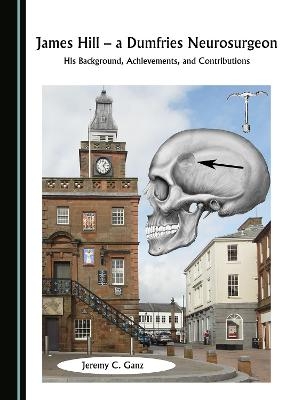
James Hill, a Dumfries Neurosurgeon
Cambridge Scholars Publishing (Verlag)
978-1-5275-7657-5 (ISBN)
Jeremy Ganz is a Cambridge graduate and qualified as a neurosurgeon with a consultant post at Haukeland University Hospital in Bergen, Norway, in 1979. During his time in this post, he acquired a PhD in Experimental Physiology concerning the mechanisms underlying the formation of epidural hematomas, which are clinically confusing. These studies later formed the basis for a book on the topic. In 1988, a new technique called radiosurgery was introduced to the hospital and Dr Ganz was responsible for this activity. In 1993, he resigned his post in Norway to start a career teaching radiosurgery round the world, before returning to routine neurosurgery and radiosurgery in Norway, and retiring in 2010. Since that time, he has engaged in the study of the history of neurosurgery with the publication of several papers on the topic.
| Erscheinungsdatum | 04.01.2022 |
|---|---|
| Verlagsort | Newcastle upon Tyne |
| Sprache | englisch |
| Maße | 148 x 212 mm |
| Themenwelt | Geisteswissenschaften ► Archäologie |
| Geschichte ► Allgemeine Geschichte ► Neuzeit (bis 1918) | |
| Medizinische Fachgebiete ► Chirurgie ► Neurochirurgie | |
| Studium ► Querschnittsbereiche ► Geschichte / Ethik der Medizin | |
| ISBN-10 | 1-5275-7657-4 / 1527576574 |
| ISBN-13 | 978-1-5275-7657-5 / 9781527576575 |
| Zustand | Neuware |
| Informationen gemäß Produktsicherheitsverordnung (GPSR) | |
| Haben Sie eine Frage zum Produkt? |
aus dem Bereich


